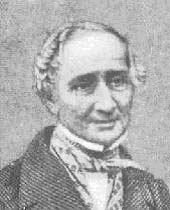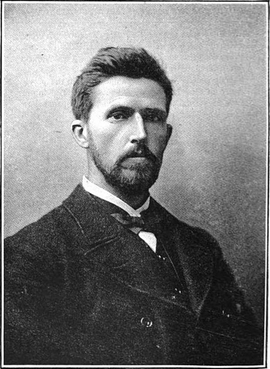Related Research Articles
The Brethren in Christ Church (BIC) is a River Brethren Christian denomination. Falling within the Anabaptist tradition of Christianity, the Brethren in Christ Church has roots in the Mennonite church, with influences from the revivals of Radical Pietism and the holiness movement. They have also been known as River Brethren and River Mennonites. The Canadian denomination is called Be In Christ.

Peter Agre is an American physician, Nobel Laureate, and molecular biologist, Bloomberg Distinguished Professor at the Johns Hopkins Bloomberg School of Public Health and Johns Hopkins School of Medicine, and director of the Johns Hopkins Malaria Research Institute. In 2003, Agre and Roderick MacKinnon shared the 2003 Nobel Prize in Chemistry for "discoveries concerning channels in cell membranes." Agre was recognized for his discovery of aquaporin water channels. Aquaporins are water-channel proteins that move water molecules through the cell membrane. In 2009, Agre was elected president of the American Association for the Advancement of Science (AAAS) and became active in science diplomacy.

James Hudson Taylor was a British Baptist Christian missionary to China and founder of the China Inland Mission. Taylor spent 54 years in China. The society that he began was responsible for bringing over 800 missionaries to the country who started 125 schools and directly resulted in 20,000 Christian conversions, as well as the establishment of more than 300 stations of work with more than 499 local helpers in all 18 provinces.
The Council for World Mission (CWM) is a worldwide community of mainly Protestant Christian churches. The organisation works to spread the knowledge of Christ throughout the world and to strengthen their 32 members in their mission work by sharing their resources of money, people, skills and insights.

The White Fathers, officially the Missionaries of Africa abbreviated MAfr), are a Roman Catholic society of apostolic life of Pontifical Right founded in 1868 by then Archbishop of Algiers Charles-Martial Allemand-Lavigerie. The society focuses on evangelism and education, mostly in Africa. In 2021, there were 1428 members of the Missionaries of Africa of 36 nationalities, working in 42 countries, in 217 communities.
Sikalongo is a rural community in the Southern Province of Zambia. It is located 30 km east-south-east of Choma in the Singani Chieftaincy, not far from the Zambezi Escarpment north-west of Lake Kariba. It existed as a traditional community until the early twentieth century when American missionaries from the Brethren in Christ Church established a mission station there. During the first half of the twentieth century, missionaries established a church, a clinic, and a primary school. In 1968, the Brethren in Christ church established a Bible Institute which continues to the present. With help from the local community, the mission station established a secondary school during the 1970s.
Elijah Haatuakali Kaiba Mudenda was a Zambian politician. He served as the 2nd Prime Minister of Zambia from 27 May 1975 to 20 July 1977.

Anthony Norris Groves was an English Protestant missionary, who has been called the "father of faith missions". He launched the first Protestant mission to Arabic-speaking Muslims, and settled in Baghdad, and later in southern India. His ideas influenced a circle of friends who became leaders in the Plymouth Brethren. Among these were John Nelson Darby, John Vesey Parnell, 2nd Baron Congleton, and George Müller, who had married Groves's sister Mary.
Protestants in India are a minority and a sub-section of Christians in India and also to a certain extent the Christians in Pakistan before the Partition of India, that adhere to some or all of the doctrines of Protestantism. Protestants in India are a small minority in a predominantly Hindu majority country, but form majorities in the north-eastern states of Meghalaya, Mizoram and Nagaland and significant minorities in Konkan division, Bengal, Kerala and Tamil Nadu, with various communities in east coast and northern states. Protestants today trace their heritage back to the Protestant reformation of the 16th century. There are an estimated 20 million Protestants and 16 million Pentecostals in India.
Protestants in Japan constitute a religious minority of about 0.45% of total population or 600,000 people in 2020.
Macha is located in the Southern Province of Zambia, 70 km from the nearest town of Choma and 350 km by road from the capital city of Lusaka. The topography of the area is somewhat undulating, primarily open savannah woodland averaging 1,100 meters above sea level. The climate is tropical. The Macha area is populated by traditional villagers, living in small scattered homesteads which usually consist of one extended family. There are no commercial farmers or industries in the area. The primary livelihood is subsistence farming with maize being the main crop.

Frederick Stanley Arnot was a British missionary who did much to establish Christian missions in what are now Angola, Zambia and the Democratic Republic of the Congo (DRC).
Kalene Hill is a community in the northwest of Zambia near a hill by the same name about 3 kilometres (2 mi) to the southeast. It is part of the Ikelenge District. Kalene Hill was the site of an early medical mission. The hospital is still important to the region.

EMMS International is a Non-governmental Organization (NGO) that provides medical aid to countries around the world and operates offices in the UK. Founded to provide clinical education and medical aid to people in need in Scotland, it later expanded to the Middle East, South Asia, and Africa through sponsoring the construction of dispensaries and hospitals. Its education expanded from training physicians in Edinburgh to training local nurses and physicians in the countries where it works. EMMS continues to provide resource assistance at all its sites. Based in Scotland, its vision is health for today, hope for tomorrow.

Christian Hospital, Bissamcuttack is a prime not for profit missionary hospital as well as one of the private recognized hospitals of Indian Railways in the most deprived regions of the state of Odisha, India. The hospital today extends its services in general medicine, general surgery, obstetrics and gynaecology, pediatrics, ophthalmology, orthopaedics, dental, chaplaincy, nursing education and a Community Health programme called MITRA. The hospital also runs a recognised college of nursing on the medical campus.
The Open Brethren, sometimes called Christian Brethren, are a group of Evangelical Christian churches that arose in the late 1820s as part of the Assembly Movement within the Plymouth Brethren tradition. They originated in Ireland before spreading throughout the British Isles, and today they have an estimated 26,000 assemblies worldwide.

The Catholic Medical Mission Board (CMMB) is an international, faith-based NGO, providing long-term, co-operative medical and development aid to communities affected by poverty and healthcare issues. It was established in 1912 and officially registered in 1928. CMMB is headquartered in New York City, USA, and currently has country offices in Haiti, Kenya, Peru, South Sudan, and Zambia.
Chilonga is a town in Mpika District in the Muchinga Province of Zambia.

William Harrison "Harry" Anderson was an American missionary for the Seventh-day Adventist Church. He arrived in Africa in 1895 and established the Solusi Mission near Bulawayo, Rhodesia. Anderson and the mission survived the Second Matabele War and a 1899–1901 malaria outbreak. In 1903 he established the Rusangu Mission in the north of Rhodesia, which now hosts schools and a university. Anderson later worked in the Bechuanaland Protectorate and Angola. From 1935 to his retirement in 1945 he was employed by the Seventh-day Adventist Church's Africa Division with responsibilities stretching from Cape Town to Lake Chad.

Andrew Davidson,, was a Scottish physician who worked as a medical missionary, tropical disease researcher and medical facility administrator in Madagascar and Mauritius. He was an early advocate for the teaching of tropical medicine in British medical schools, and was the author of many publications, mostly related to aspects of tropical medicine.
References
- Engle, Anna R., J. A. Climenhaga and Leoda A. Buckwalter (1950). There is No Difference, God Works in Africa and India. Nappanee, Ind.: E. V. Publishing House.
- Davidson, Hannah Frances (1915). South and South Central Africa. Elgin, Ill.: Brethren Publishing House. At Internet Archive
- Wittlinger, Carlton O (1978). Quest for Piety and Obedience: The Story of the Brethren in Christ. Nappanee, Ind.: Evangel Press.